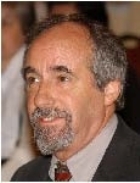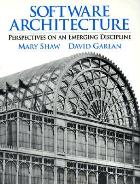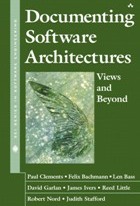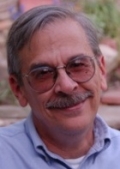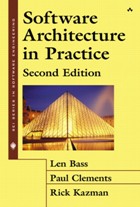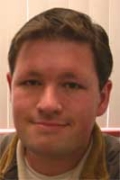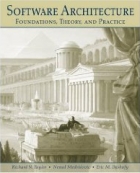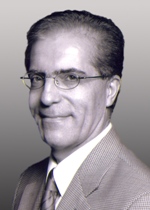Difference between revisions of "ASEET2010"
(→'''ASEE&T 2010 Agenda''') |
|||
| (54 intermediate revisions by 3 users not shown) | |||
| Line 1: | Line 1: | ||
== '''Academy for Software Engineering Educators & Trainers 2010''' == | == '''Academy for Software Engineering Educators & Trainers 2010''' == | ||
| + | <span style="color:red">'''Software Architecture: Teaching the Theory and Practice''' </span> | ||
| − | + | Friday - March 12, 2010 (ASEE&T is free for registered CSEE&T'10 participants; $200 for others) | |
| − | |||
| − | For the 2010 Academy, we | + | The purpose of the '''Academy for Software Engineering Educators & Trainers''' (ASEE&T 2010) is to provide an opportunity for software engineering educators and trainers to learn from faculty mentors ("master instructors") in a highly dynamic, hands-on, interactive environment. |
| + | |||
| + | The focus of the 2010 Academy is ''software architecture''. Software architecture has become an increasingly important discipline within software engineering and is very hard to teach the right way. For the 2010 Academy, we have invited three of the most distinguished individuals (faculty mentors) who have helped define the software architecture discipline or who have been teaching the discipline from the beginning or have co-authored the most important textbooks on software architecture. | ||
The one-day Academy is an excellent opportunity for academicians new to teaching software architecture courses, including PhD students who will soon be entering academic careers, new faculty members, and mid-career faculty members who would want to be trained by "super instructors" in this emerging and increasingly important discipline. | The one-day Academy is an excellent opportunity for academicians new to teaching software architecture courses, including PhD students who will soon be entering academic careers, new faculty members, and mid-career faculty members who would want to be trained by "super instructors" in this emerging and increasingly important discipline. | ||
| − | + | - - - - - - - - - - - - - - - - - - - - - - - - - -- - - - - - - - - - - - - - - - - - - - - - - - - - - - - - - - - - - - - - -- - - - - - | |
'''Keynote and Faculty Mentors''' | '''Keynote and Faculty Mentors''' | ||
| Line 17: | Line 19: | ||
The faculty mentors for the ASEE&T 2010 will include the co-authors of the three most important texts on software architecture. | The faculty mentors for the ASEE&T 2010 will include the co-authors of the three most important texts on software architecture. | ||
| − | '''Keynoter''': Professor David Garlan, ''Carnegie Mellon University'' | + | '''Keynoter and Faculty Mentor''': Professor David Garlan, ''Carnegie Mellon University'' |
| − | [[Image:Garlan.jpg]] | + | Co-author of |
| + | ''Software Architecture: Perspectives on an Emerging Discipline'' (Prentice Hall, 1996) and ''Documenting Software Architectures'' (Addison-Wesley, 2002) | ||
| + | |||
| + | [[Image:Garlan.jpg]] --- [[Image:SG-book.jpg]] --- [[Image:Bass-book2.jpg]] | ||
David Garlan is a Professor in the School of Computer | David Garlan is a Professor in the School of Computer | ||
| Line 29: | Line 34: | ||
and software development environments. | and software development environments. | ||
| − | + | - - - - - - - - - - - - - - - - - - - - - - - - - -- - - - - - - - - - - - - - - - - - - - - - - - - - - - - - - - - - - - - - - -- - - - - | |
| − | + | ||
| − | + | ||
| − | [[Image:Bass.jpg]] | + | '''Faculty Mentor''': Dr. Len Bass, ''SEI, Carnegie Mellon University'' |
| + | |||
| + | Leading co-author of ''Software Architecture in Practice'' | ||
| + | (2nd edition, Addison-Wesley, 2003), and co-author of ''Documenting Software Architectures'' (Addison-Wesley, 2002) | ||
| + | |||
| + | [[Image:Bass.jpg]] --- [[Image:Bass-book1.jpg]] --- [[Image:Bass-book2.jpg]] | ||
Dr. Len Bass is a Senior Member of the Technical Staff at the | Dr. Len Bass is a Senior Member of the Technical Staff at the | ||
Software Engineering Institute (SEI). He has written two | Software Engineering Institute (SEI). He has written two | ||
| − | award winning books in software architecture | + | award winning books in software architecture |
| − | + | as well as several other books and numerous papers | |
| − | + | ||
| − | + | ||
in a wide variety of areas of computer science and | in a wide variety of areas of computer science and | ||
software engineering. He has been a keynote speaker | software engineering. He has been a keynote speaker | ||
| Line 50: | Line 56: | ||
software development practices. | software development practices. | ||
| − | [[Image:Dashofy.jpg]] | + | - - - - - - - - - - - - - - - - - - - - - - - - - -- - - - - - - - - - - - - - - - - - - - - - - - - - - - - - - - - - - - - - - - - - - - |
| + | |||
| + | '''Faculty Mentor''': Dr. Eric Dashofy, ''The Aerospace Corporation'' | ||
| + | |||
| + | Co-author of ''Software Architecture:'' | ||
| + | ''Foundations, Theory, and Practice'' (Wiley, 2009) | ||
| + | |||
| + | [[Image:Dashofy.jpg]] --- [[Image:TMD-book.jpg]] | ||
Eric Dashofy is a computer scientist with a background | Eric Dashofy is a computer scientist with a background | ||
| Line 61: | Line 74: | ||
California, Irvine. | California, Irvine. | ||
| − | Dr. Dashofy is a co-author of ''Software Architecture: | + | Dr. Dashofy is a co-author of ''Software Architecture:'' |
| − | Foundations, Theory, and Practice'', (along with Richard | + | ''Foundations, Theory, and Practice'', (along with Richard |
N. Taylor and Nenad Medvidovic, Wiley, 2009). This text | N. Taylor and Nenad Medvidovic, Wiley, 2009). This text | ||
is perhaps the first full-length textbook on software | is perhaps the first full-length textbook on software | ||
| Line 69: | Line 82: | ||
software engineering seen with an architecture-centric | software engineering seen with an architecture-centric | ||
perspective. | perspective. | ||
| + | |||
| + | == '''ASEE&T 2010 Agenda''' == | ||
| + | |||
| + | |||
| + | 08:30-08:40 <span style="color:red"> Opening remarks (Hossein Saiedian) </span> | ||
| + | |||
| + | 08:40-09:45 <span style="color:red"> '''Keynote talk: Dr. David Garlan,''' '''''"The Changing Face of Software Architecture -- and What it Means for Educators"''''' | ||
| + | </span> (Slides: [[Media:David-Garlan-Keynote.pdf | PDF]]) | ||
| + | |||
| + | 09:45-10:00 Q&A | ||
| + | |||
| + | 10:00-10:15 Coffee Break | ||
| + | |||
| + | 10:15-12:00 <span style="color:red">'''Elements of a successful software architecture course''' </span> | ||
| + | |||
| + | * '''Presentation and discussion led by Dr. David Garlan''' (Slides: [[Media:David-Garlan-ASEET10.pdf | PDF]]) | ||
| + | ** What are the core ideas of software architecture that should be taught to students? | ||
| + | ** How is "architectural thinking" different from programming? | ||
| + | ** What is a good architecture assignment? | ||
| + | ** How does what you teach depend on the background of the students in the class? | ||
| + | ** Should we be teaching software architecture at the undergraduate level? | ||
| + | ** What should a *second* course in software architecture cover? | ||
| + | ** What can you teach in a 3-day intensive course, for example, to industry? | ||
| + | |||
| + | 12:00-01:00 Lunch break | ||
| + | |||
| + | 01:00-02:30 <span style="color:red">'''Designing software architecture to achieve business goals ''' </span> | ||
| + | |||
| + | * '''Presentation and discussion led by Dr. Len Bass''' (Slides: [[Media:Len-Bass-ASEET10.pdf | PDF]]) | ||
| + | ** Determining the business goals for a project. | ||
| + | ** People and roles | ||
| + | ** Determining the requirements on which to focus | ||
| + | ** Implications on curriculum | ||
| + | ** A customers perspective on studio projects | ||
| + | |||
| + | 02:30-02:45 Coffee break | ||
| + | |||
| + | 02:45-04:45 <span style="color:red">'''Software architecture projects ''' </span> | ||
| + | |||
| + | * '''Presentation and discussion led by Dr. Eric Dashofy''' (Slides: [[Media:Eric-Dashofey-ASEET10.pdf | PDF]]) | ||
| + | ** Elements of a successful project | ||
| + | ** Projects that will integrate education and research | ||
| + | ** Challenges in establishing research collaborations between universities and industry | ||
| + | ** How to achieve educational research and industry goals in a collaboration | ||
| + | ** Strategies for success in a university/industry collaboration (in a context of software architecture course) | ||
| + | ** Software architecture challenges that industry faces | ||
| + | |||
| + | 04:45-05:00 <span style="color:red"> Concluding remarks and final advice </span> | ||
| + | |||
| + | ---- | ||
| + | |||
| + | |||
| + | '''ASEE&T 2010 Coordinator''': Hossein Saiedian, University of Kansas | ||
| + | |||
| + | http://people.eecs.ku.edu/~saiedian/ | ||
| + | |||
| + | [[Image:Saiedian.jpg]] | ||
Latest revision as of 14:29, 13 March 2010
Academy for Software Engineering Educators & Trainers 2010
Software Architecture: Teaching the Theory and Practice
Friday - March 12, 2010 (ASEE&T is free for registered CSEE&T'10 participants; $200 for others)
The purpose of the Academy for Software Engineering Educators & Trainers (ASEE&T 2010) is to provide an opportunity for software engineering educators and trainers to learn from faculty mentors ("master instructors") in a highly dynamic, hands-on, interactive environment.
The focus of the 2010 Academy is software architecture. Software architecture has become an increasingly important discipline within software engineering and is very hard to teach the right way. For the 2010 Academy, we have invited three of the most distinguished individuals (faculty mentors) who have helped define the software architecture discipline or who have been teaching the discipline from the beginning or have co-authored the most important textbooks on software architecture.
The one-day Academy is an excellent opportunity for academicians new to teaching software architecture courses, including PhD students who will soon be entering academic careers, new faculty members, and mid-career faculty members who would want to be trained by "super instructors" in this emerging and increasingly important discipline.
- - - - - - - - - - - - - - - - - - - - - - - - - -- - - - - - - - - - - - - - - - - - - - - - - - - - - - - - - - - - - - - - -- - - - - -
Keynote and Faculty Mentors
The faculty mentors for the ASEE&T 2010 will include the co-authors of the three most important texts on software architecture.
Keynoter and Faculty Mentor: Professor David Garlan, Carnegie Mellon University
Co-author of Software Architecture: Perspectives on an Emerging Discipline (Prentice Hall, 1996) and Documenting Software Architectures (Addison-Wesley, 2002)
David Garlan is a Professor in the School of Computer Science at Carnegie Mellon University, where he leads several research projects and is the Director of Professional Software Engineering Programs. His research interests include: software architecture, pervasive computing, self-healing systems, applied formal methods, and software development environments.
- - - - - - - - - - - - - - - - - - - - - - - - - -- - - - - - - - - - - - - - - - - - - - - - - - - - - - - - - - - - - - - - - -- - - - -
Faculty Mentor: Dr. Len Bass, SEI, Carnegie Mellon University
Leading co-author of Software Architecture in Practice (2nd edition, Addison-Wesley, 2003), and co-author of Documenting Software Architectures (Addison-Wesley, 2002)
Dr. Len Bass is a Senior Member of the Technical Staff at the Software Engineering Institute (SEI). He has written two award winning books in software architecture as well as several other books and numerous papers in a wide variety of areas of computer science and software engineering. He has been a keynote speaker or a distinguished lecturer on six continents. He is currently working on techniques for the methodical design of software architectures, to understand how to support usability through software architecture, and to understand the relationship between software architecture and global software development practices.
- - - - - - - - - - - - - - - - - - - - - - - - - -- - - - - - - - - - - - - - - - - - - - - - - - - - - - - - - - - - - - - - - - - - - -
Faculty Mentor: Dr. Eric Dashofy, The Aerospace Corporation
Co-author of Software Architecture: Foundations, Theory, and Practice (Wiley, 2009)
Eric Dashofy is a computer scientist with a background in software architecture and software engineering. He currently work as a Senior Member of the Technical Staff at The Aerospace Corporation, a federally funded research and development center (FFRDC) in El Segundo, CA. He has a Ph.D. in Computer Science from The Donald Bren School of Information and Computer Sciences at the University of California, Irvine.
Dr. Dashofy is a co-author of Software Architecture: Foundations, Theory, and Practice, (along with Richard N. Taylor and Nenad Medvidovic, Wiley, 2009). This text is perhaps the first full-length textbook on software architecture, with a broad and comprehensive treatment of not just architecture itself, but the discipline of software engineering seen with an architecture-centric perspective.
ASEE&T 2010 Agenda
08:30-08:40 Opening remarks (Hossein Saiedian)
08:40-09:45 Keynote talk: Dr. David Garlan, "The Changing Face of Software Architecture -- and What it Means for Educators" (Slides: PDF)
09:45-10:00 Q&A
10:00-10:15 Coffee Break
10:15-12:00 Elements of a successful software architecture course
- Presentation and discussion led by Dr. David Garlan (Slides: PDF)
- What are the core ideas of software architecture that should be taught to students?
- How is "architectural thinking" different from programming?
- What is a good architecture assignment?
- How does what you teach depend on the background of the students in the class?
- Should we be teaching software architecture at the undergraduate level?
- What should a *second* course in software architecture cover?
- What can you teach in a 3-day intensive course, for example, to industry?
12:00-01:00 Lunch break
01:00-02:30 Designing software architecture to achieve business goals
- Presentation and discussion led by Dr. Len Bass (Slides: PDF)
- Determining the business goals for a project.
- People and roles
- Determining the requirements on which to focus
- Implications on curriculum
- A customers perspective on studio projects
02:30-02:45 Coffee break
02:45-04:45 Software architecture projects
- Presentation and discussion led by Dr. Eric Dashofy (Slides: PDF)
- Elements of a successful project
- Projects that will integrate education and research
- Challenges in establishing research collaborations between universities and industry
- How to achieve educational research and industry goals in a collaboration
- Strategies for success in a university/industry collaboration (in a context of software architecture course)
- Software architecture challenges that industry faces
04:45-05:00 Concluding remarks and final advice
ASEE&T 2010 Coordinator: Hossein Saiedian, University of Kansas
